The competition for the 'Oscars' in the photography world is heating up in the National Geographic Nature Photographer of the Year contest.
Entries have been a mixture of breathtaking beauty, magical wildlife moments captured from around the world and amazing aerial views offering us a different perspective of our world.
Here's our third feature showcasing the best images of Mother Nature.
Please click on the photographs for full-screen resolution
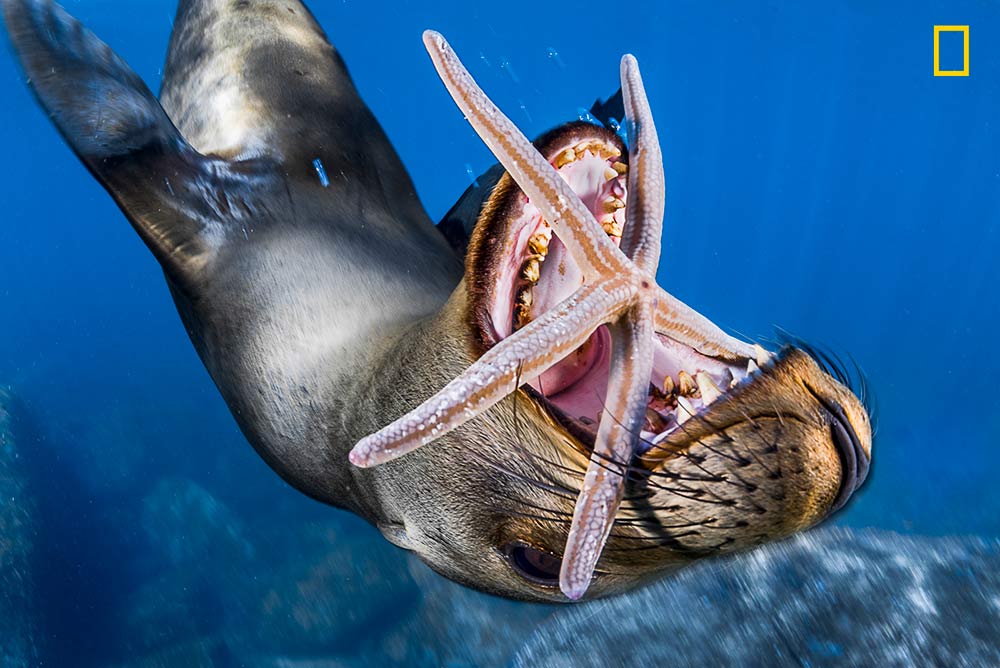
'The juvenile sea lion (zalophus californianus) plays with a sea star in isolated Los Lobos, La Paz, Mexico.
Many times it appears that a sea lion is playing with its food before it consumes it; they aren't really playing with it though.
Instead they are turning it into the right position for easier digestion.
Truth is that, in the occasions I have witnessed this behaviour, they never ended up eating them.
They just played a little time to quickly lose interest and release their involuntary play mate.'
Photograph: Pedro Carrillo/National Geographic Nature Photographer of the Year contest
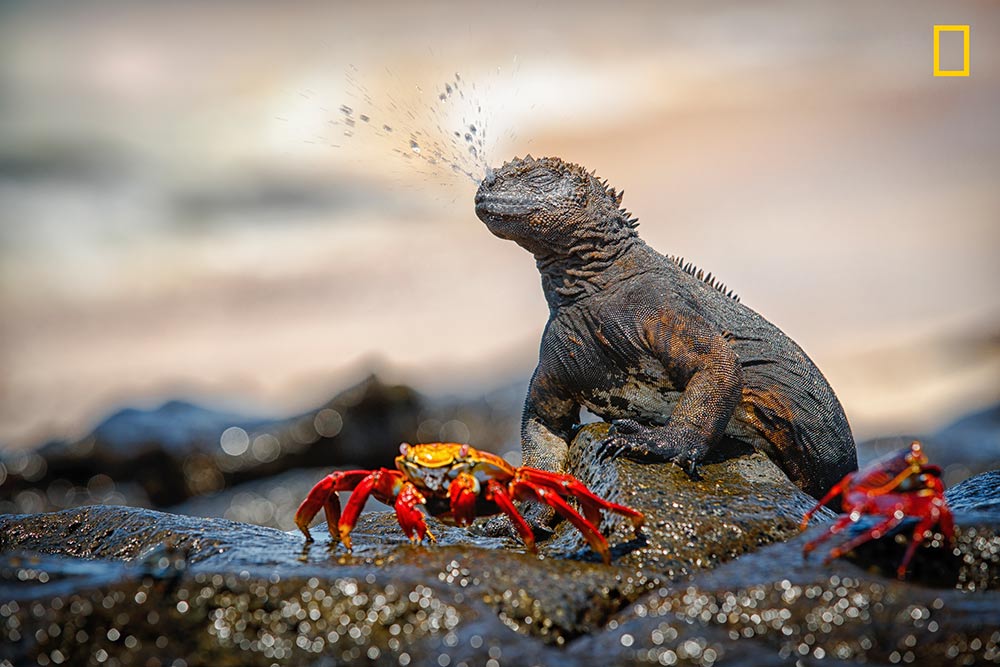
'Galapagos Marine Iguanas sneeze to expel excess salt water after they feed in the ocean.'
Photograph: M Engelmann/National Geographic Nature Photographer of the Year contest

'Many underwater photographers know the clownfish (also known as anemone fish) likes to play hide and seek. They appear and disappear in their anemone.
I was lucky to get this shot in a blink of an eye.'
Photograph: Chris Bachmann/National Geographic Nature Photographer of the Year contest
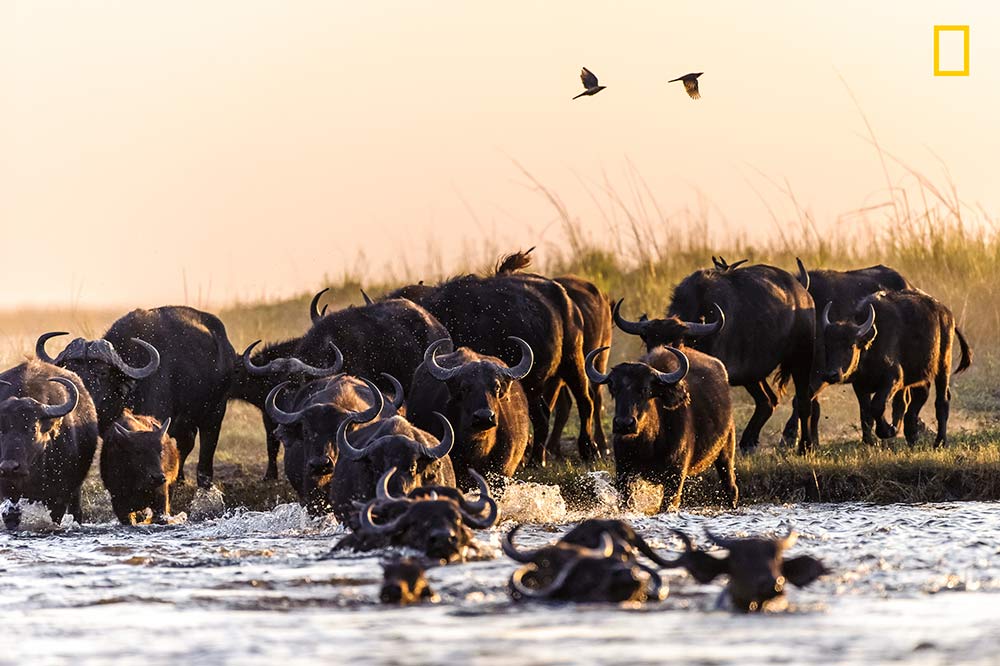
'The buffalos are crossing the river on a beautiful morning with birds chirping around.'
Photograph: Jessie Shao/National Geographic Nature Photographer of the Year contest
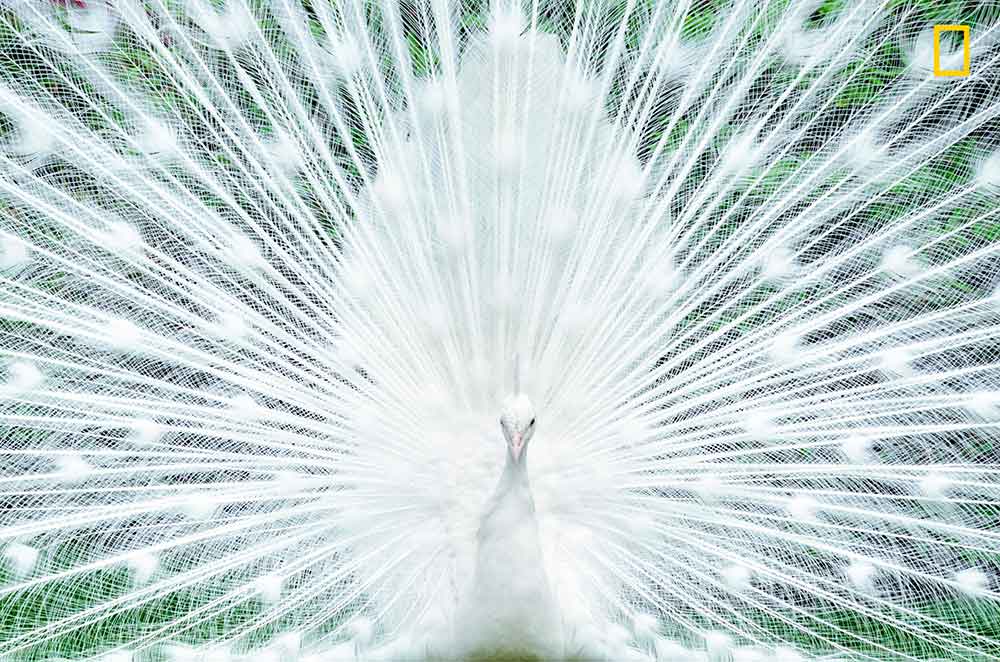
'This was a beautiful leucistic peacock on Isola Madre, one of the Borromean islands on Lake Maggiore in the Italian Alps.'
Photograph: Spencer Callahan/National Geographic Nature Photographer of the Year contest
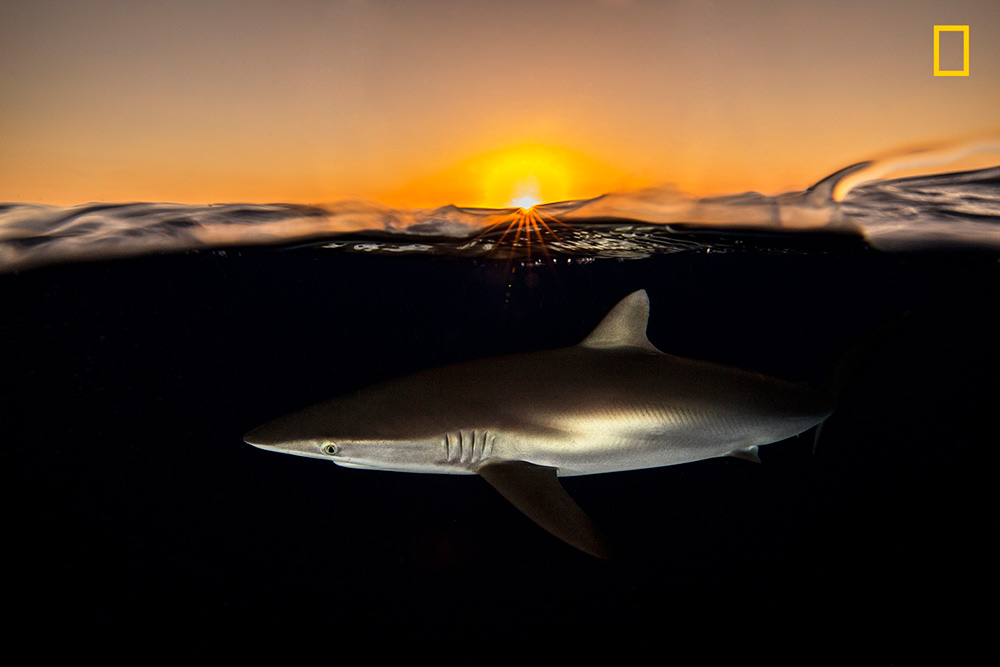
'As the sun set in Jardines de la Reina, golden sun rays pierced through the surface of the water.
It painted a spectacular backdrop for the pelagic silky sharks that came out to hunt.
I was under a lot of time pressure take the shots.
As the window of the golden light shrunk, the boatman hurried me to exit the water.
Shark waters can be dangerous on the surface when it gets dark. It was also too dangerous to navigate around shallow reefs to return to the mother boat.'
Photograph: Wai Hoe Mok/National Geographic Nature Photographer of the Year contest
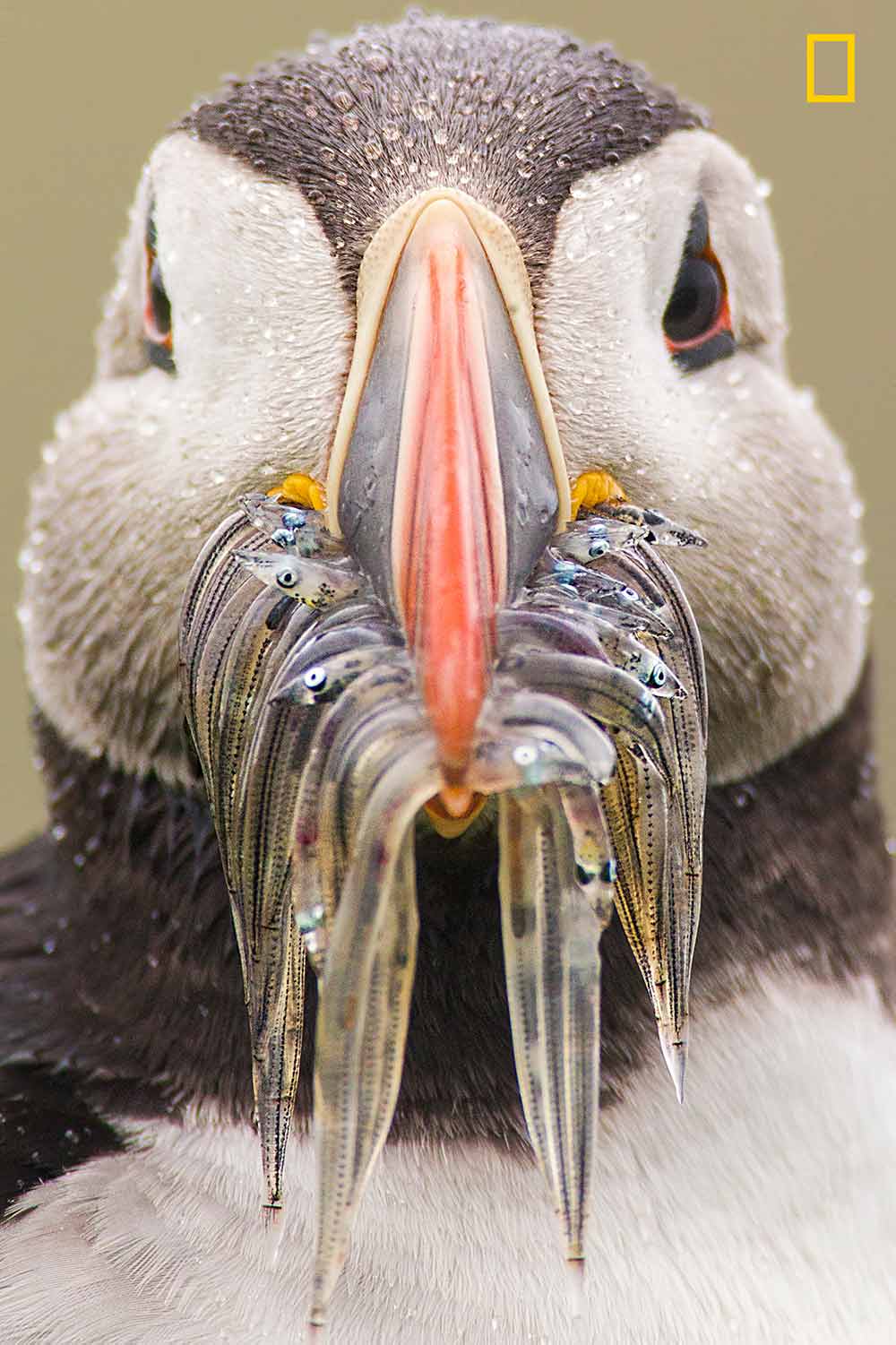
'One morning as I was photographing Atlantic Puffins on a remote island in Scotland, the skies clouded over and it started raining.
Soon it was pouring and the wind was blowing the water right into my lens.
'While rain can be discouraging, I think it offers an opportunity for some diversity of shots.
The birds kept coming back from the sea with mouths full of fish.
I was soaked -- but so were the puffins.
But they kept on working, and so did I.'
Photograph: Sunil Gopalan/National Geographic Nature Photographer of the Year contest
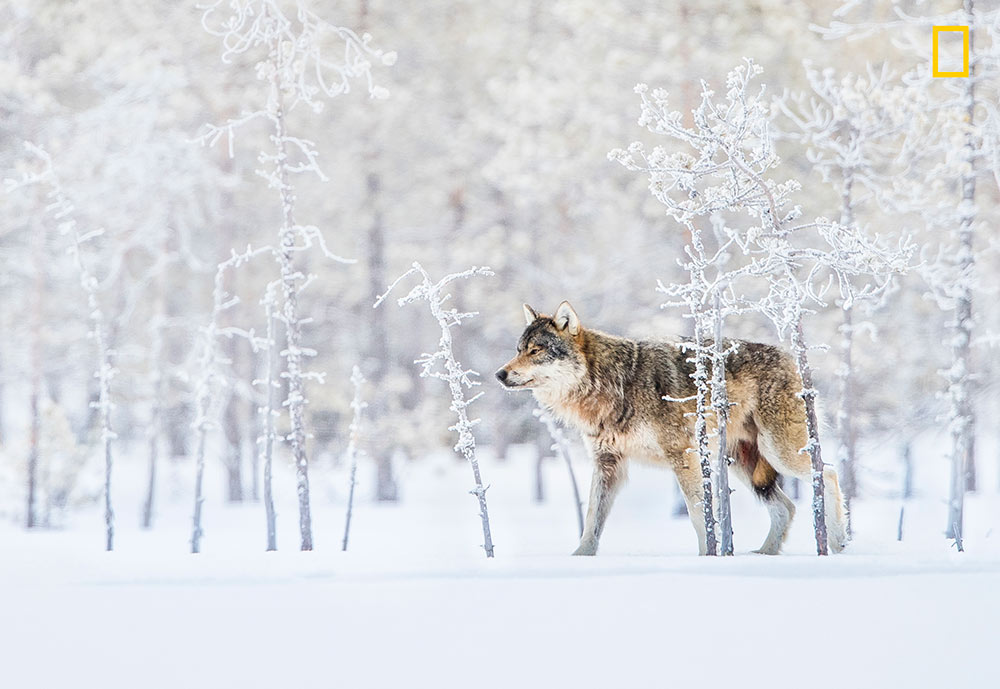
'The wolves are red listed in the Nordic countries as hunting has brought them close to extinction.
This beautiful male was captured a cold morning in the eastern parts of Finland.
The moment it showed itself in the morning was magical -- a rare sight in the winter time -- they are more commonly photographed in the summertime.'
Photograph: Bernt Østhus/National Geographic Nature Photographer of the Year contest
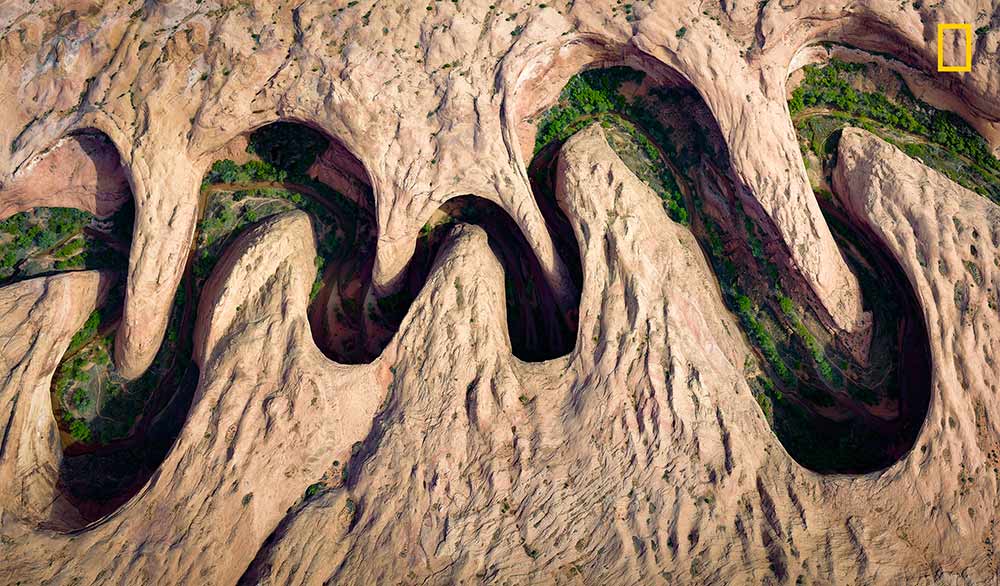
'Utah's canyons are quite impressive as your walking through the bottom. But they are equally extraordinary when viewed from above.
On this image, you can see the many twists and turns this canyon has cut through the sandstone.
The bottom of the canyon is full or riparian vegetation and is a whole different world from that above it.'
Photograph: David Swindler/National Geographic Nature Photographer of the Year contest
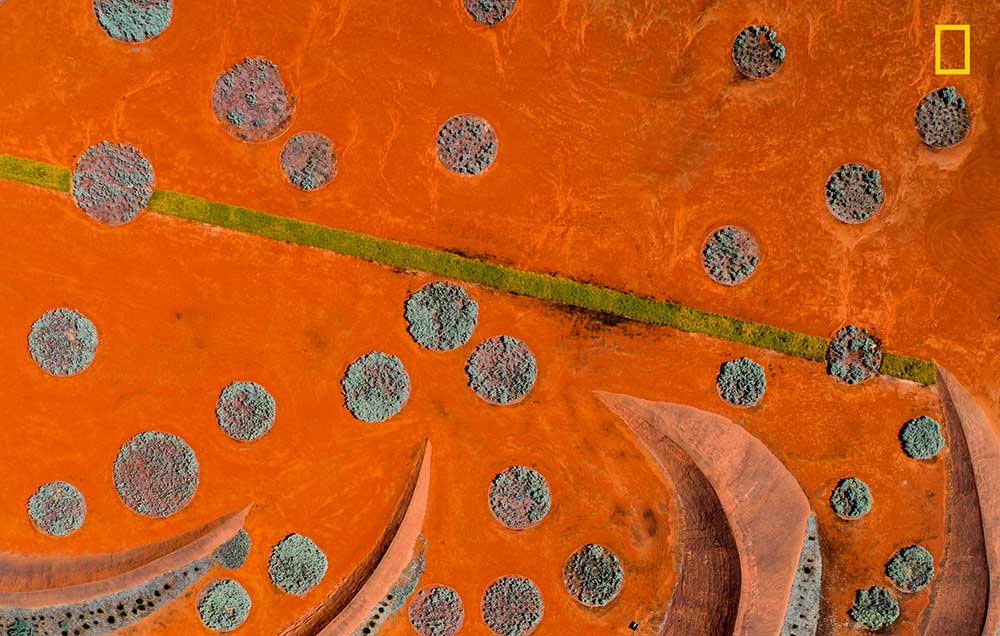
'Aerial shot (taken at an altitude of 120 metres with a drone) of the interesting patterns of the Red Sand Garden at the Royal Botanic Gardens in Cranbourne.
The journey through the Australian Garden starts with the Sand Garden where the expanse of red sand contrasts with grey foliage.
On the northern hill, mass plantings of Acacia binervia and the Spinifex sericeus are used to stabilise the sandhills.
The lower slopes are covered by a carpet of muntries (Kunzea pomifera), fruit used by aborigines.'
Photograph: Peter Virag/National Geographic Nature Photographer of the Year contest
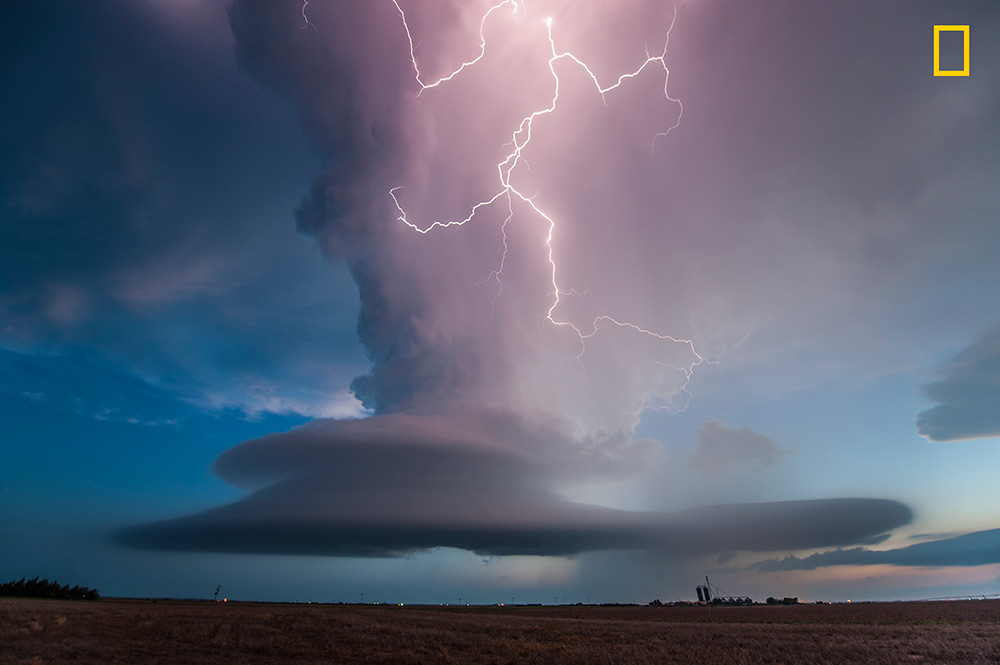
'An LP (low-precipitation) supercell thunderstorm spins away at dusk over the plains of northeast Colorado on June 11, 2017.
We caught this storm on our way up to Wyoming to set up for the next days severe weather risk that ended up producing numerous tornadoes in Wyoming, Nebraska and Colorado.'
Photograph: Colt Forney/National Geographic Nature Photographer of the Year contest
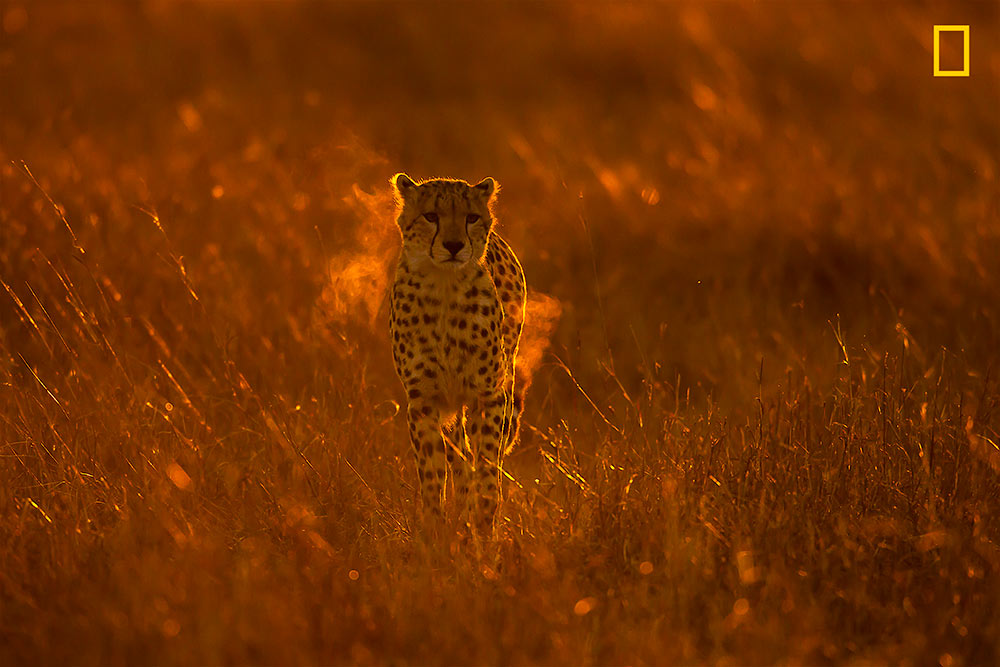
'On a cold winter morning at the savannah, from a distance it looked like a ball of fire! Masai Mara, Africa.
Photograph: Jayaprakash Joghee Bojan/National Geographic Nature Photographer of the Year contest
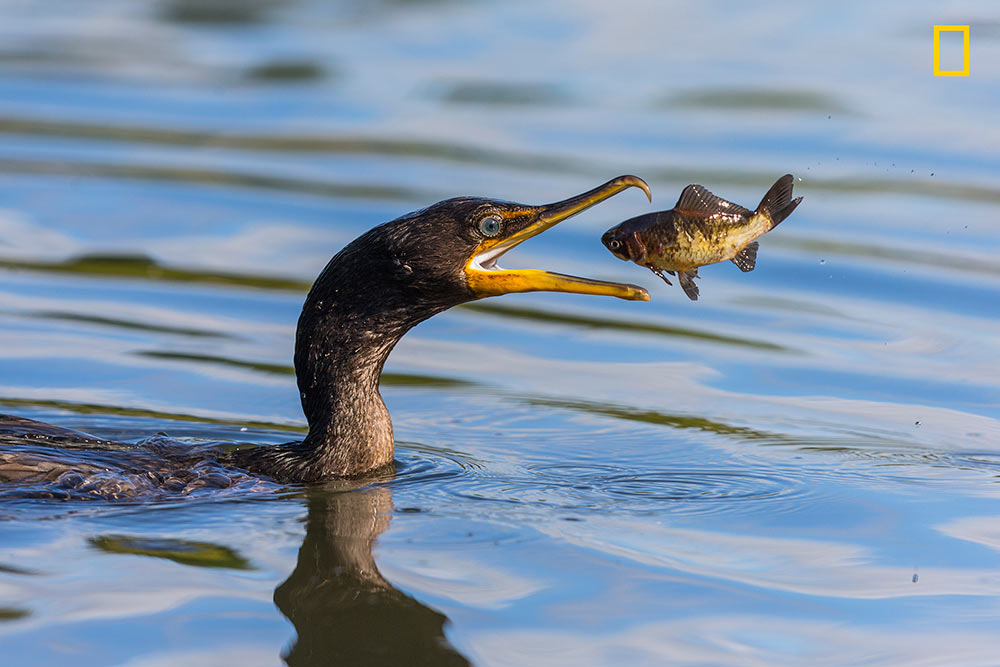
'A double-crested cormorant caught a fish in a local pond.
To eat the fish, the cormorant decided to toss the fish into the air.'
Photograph: Gary Zeng/National Geographic Nature Photographer of the Year contest
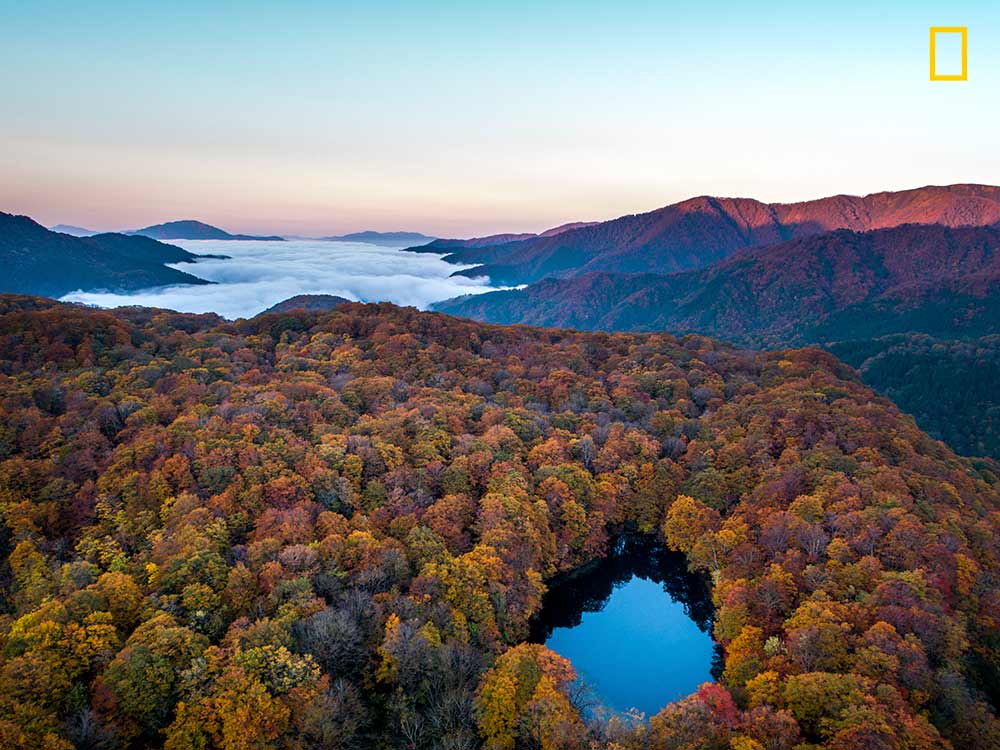
'At that day, very beautiful landscape was caught from the sky.
When the sun started to light the top of the mountain, the sea of clouds are still on the surface of the mountain.
In front of them, coloured forest and the hidden pond could be seen.'
Photograph: Takahiro Bessho/National Geographic Nature Photographer of the Year contest
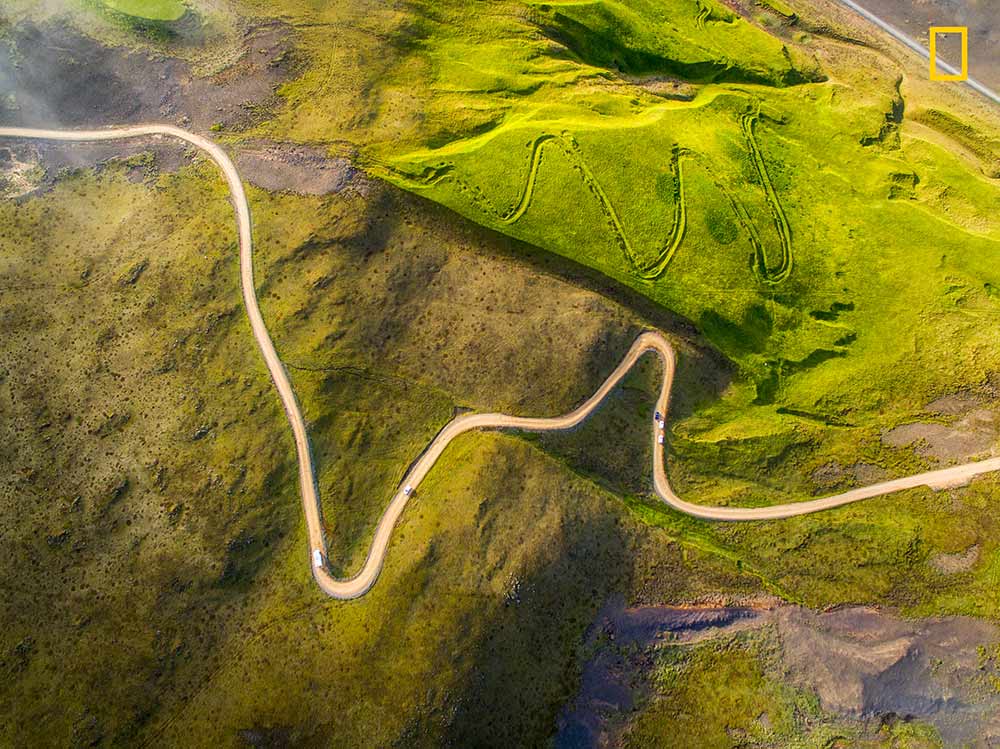
'Aerial view of a mountain road that appears like a heart beat recorded.
I flew the drone from the top of the mountain to capture the switchbacks in the road.'
Photograph: Manish Mamtani/National Geographic Nature Photographer of the Year contest









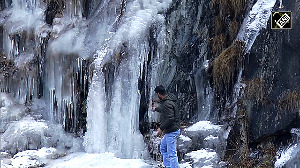
 © 2025 Rediff.com -
© 2025 Rediff.com -